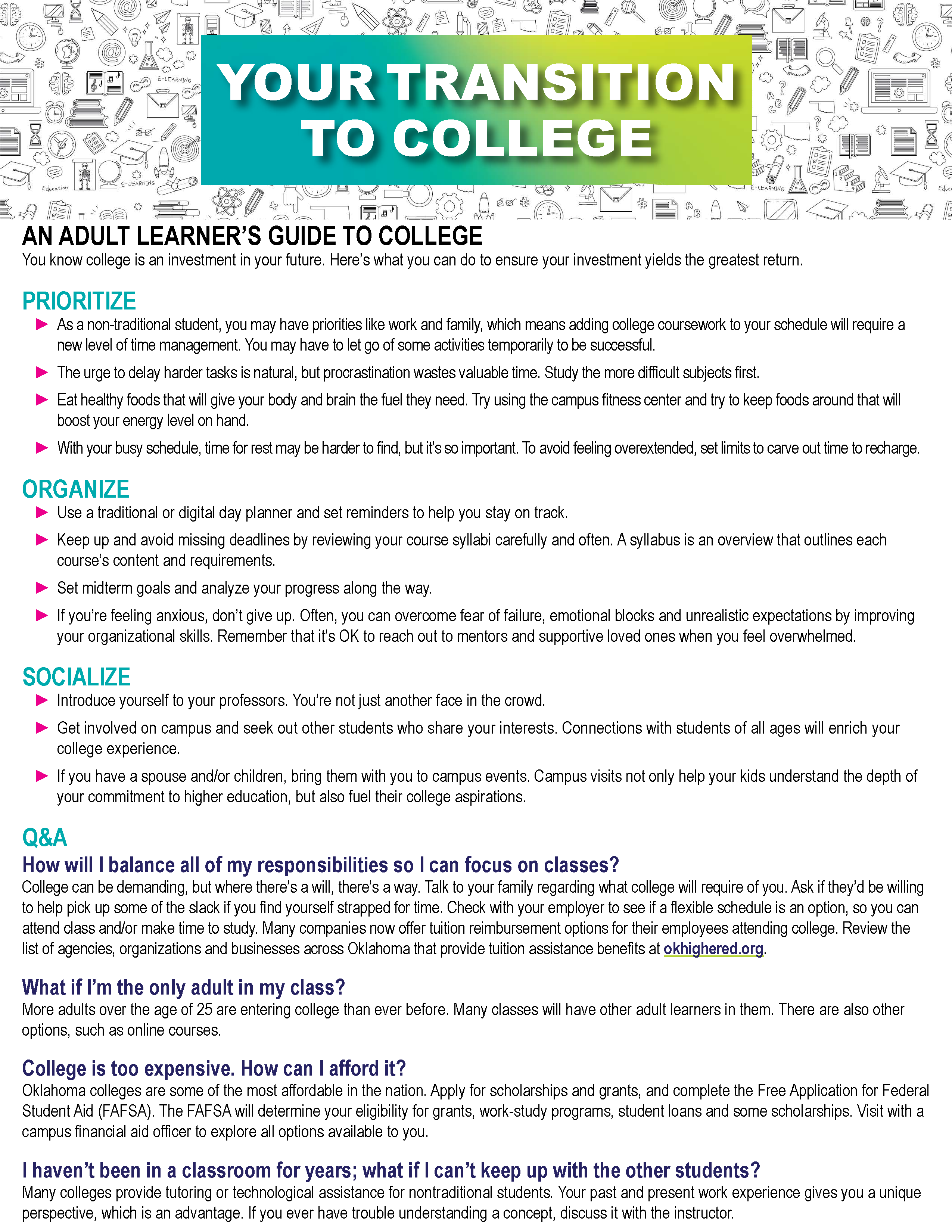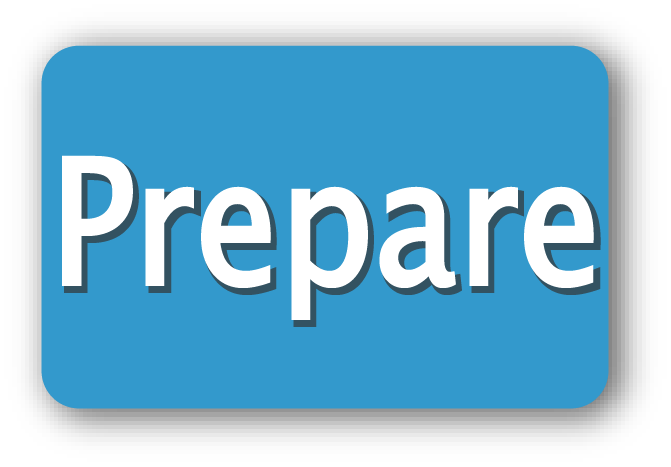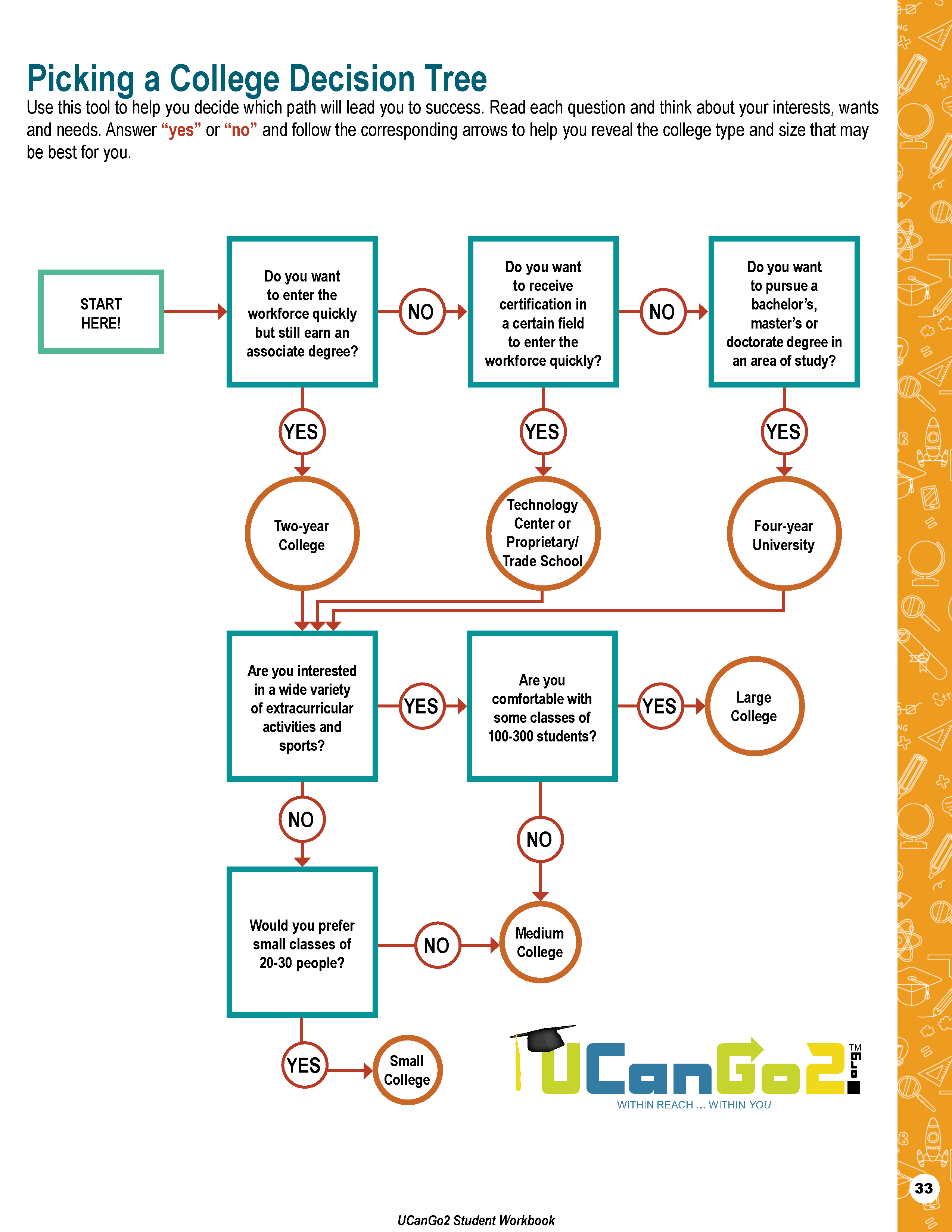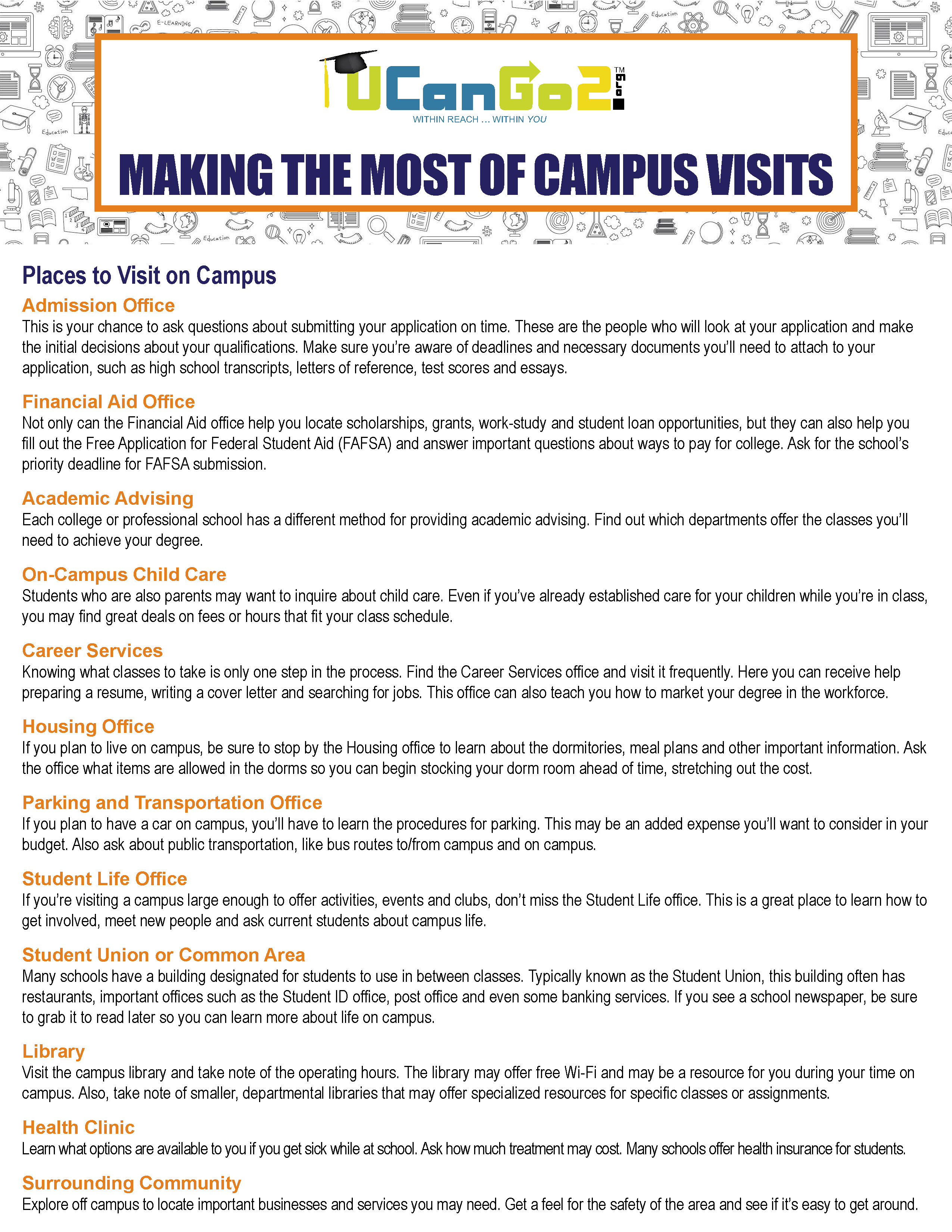Preparing for College as an Adult
How to Get "College-Ready"
Once you've decided that college is the right choice for you, you'll need to start preparing. The tabs below offer information to help you meet college admission requirements and choose a school.
- College Admission Requirements
- ACT/SAT
- Choosing a College
- The Transition to College
- UpSkillOK
College Admission Requirements
Colleges look at many different qualifiers when admitting adult students. Colleges often consider high school grades, ACT/SAT scores, proficiency in your current line of work, community involvement and extracurricular activities. Most colleges and universities require you to have a high school diploma or pass the General Education Development (GED) Test.
Do you have previously earned college credit, licenses, certifications, military study and training or advanced standing scores? Did you know they can be applied toward a degree program? Visit ShowWhatYouKnowOK.org to find out more.
Next tab: "ACT/SAT"
ACT/SAT
Most colleges in the United States require applicants to take exams used to measure educational achievements in a variety of subjects. Your overall score may be considered when you apply for admission to college.
The American College Testing (ACT) exam is more common in Oklahoma, but each college varies on entrance requirements. The Scholastic Aptitude Test (SAT) is commonly required for admission to many out-of-state colleges and universities.
Cost
Basic ACT or SAT exams typically cost $50-$70. Ask your school counselor about applying for a fee waiver.
Test Prep
It may be best to take the ACT and/or SAT more than once to help improve your score. Practice exams are available to help you prepare. Create an account at Visit OKcollegestart.org for various test prep tools. Talk to your school counselor about preparing for the exam and visit ACT.org or SAT.CollegeBoard.org to find test dates and locations.
Next tab: "Choosing a College"
Previous tab: "College Admission Requirements"
Choosing a College
There are many types of colleges and universities, all of which can be found right here in Oklahoma. Your choice of college may depend on your degree plan.
Each college offers varying degree and/or certification programs, majors and minors. Use the Picking a College Decision Tree to help decide what type of school you'd like to go to (large or small, 2-year or 4-year, etc.). Research schools could be a better fit for your preferences or offer a degree program that others don’t. Learn about their admission requirements for adults and plan campus visits be it virtual or in person. Use the Making the Most of Campus Visits guide to ensure all of your questions are answered.
Reach Higher
Have you already completed some college courses? If so, you may want to look into Oklahoma's Degree Completion Program, Reach Higher. Reach Higher offers either:
an Associate in Arts or Associate in Science in enterprise development (general studies or business administration) designed for working adults who have already earned at least 18 hours of college credit and want to finish an associate degree OR
a Bachelor of Science in organizational leadership degree designed for working adults who have already earned at least 72 hours of college credit and want to finish a bachelor’s degree.
Next tab: "The Transition to College"
Previous tab: "ACT/SAT"
The Transition to College
 Whether you finished high school 5 years ago or 25 years ago, one fact remains: college is very different from high school. You may be wondering what to expect. Our flyer, Your Transition to College provides tips for success in college and outlines the differences between college and high school.
Whether you finished high school 5 years ago or 25 years ago, one fact remains: college is very different from high school. You may be wondering what to expect. Our flyer, Your Transition to College provides tips for success in college and outlines the differences between college and high school.
For example, in high school your time spent in school was planned by others, and you were frequently reminded about upcoming due dates. In college you manage your own class schedule, and you are responsible for seeking out and meeting deadlines. In high school, most classes had no more than 35 students. In college, especially large colleges, some classes may have hundreds of students.
These are just few of the differences. Check out the Your Transition to College flyer to learn more.
Next tab: "UpSkillOK"
Previous tab: "Choosing a College"
UpSkillOK: Micro-credential Programs
Through UpskillOK, the State Regents are developing a statewide framework for micro-credentials, alternative learning pathways directly aligned with high-demand skills requested by employers. Micro-credentials help individuals adapt and succeed, equipping both students pursuing a degree and current degree-holders with specific career skillsets, competencies, and knowledge that can be readily transferred to fill critical workforce needs. Visit UpskillOK.org today!
Previous tab: "The Transition to College"






